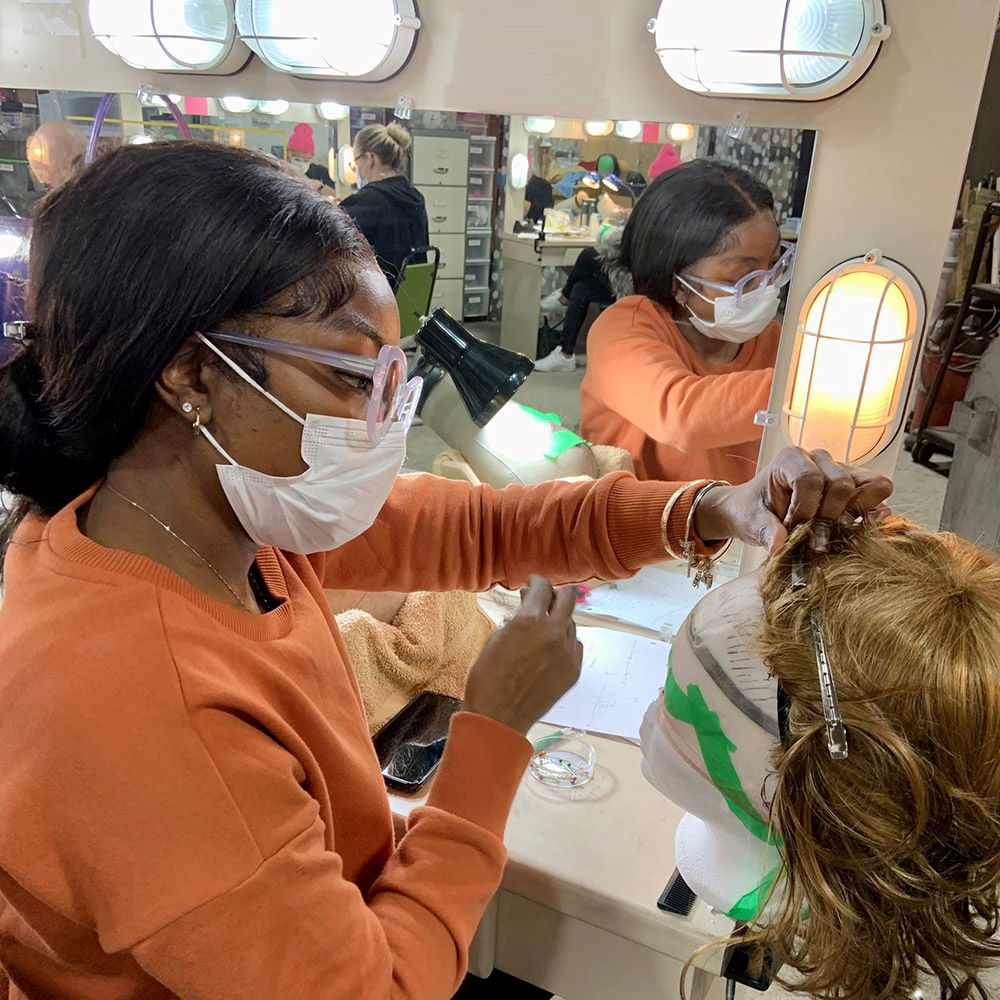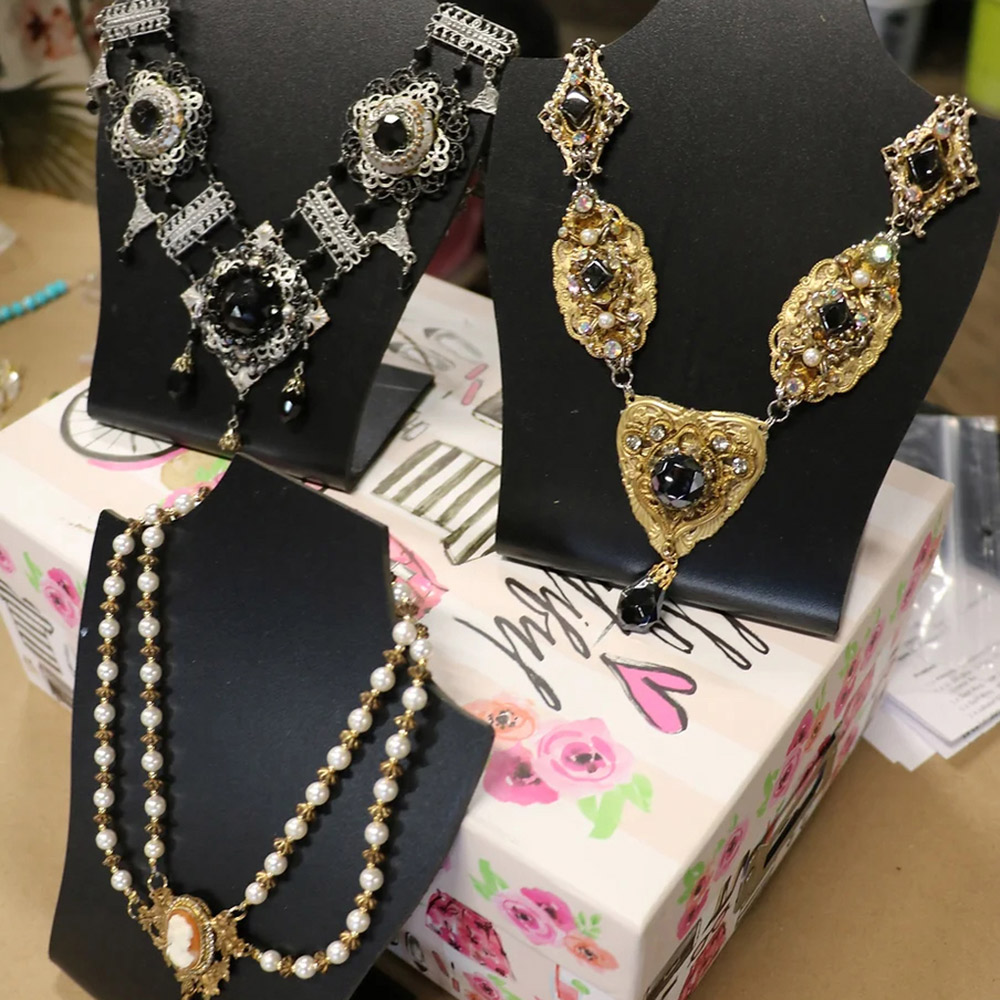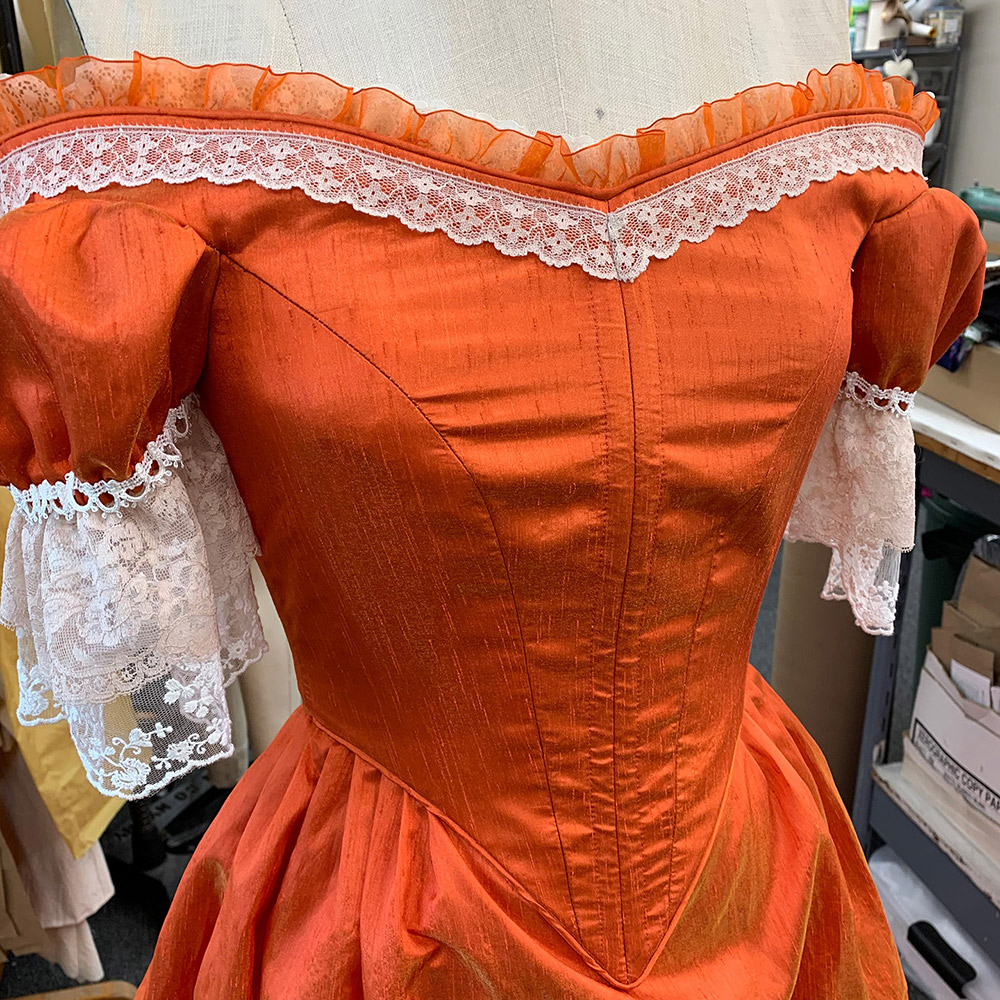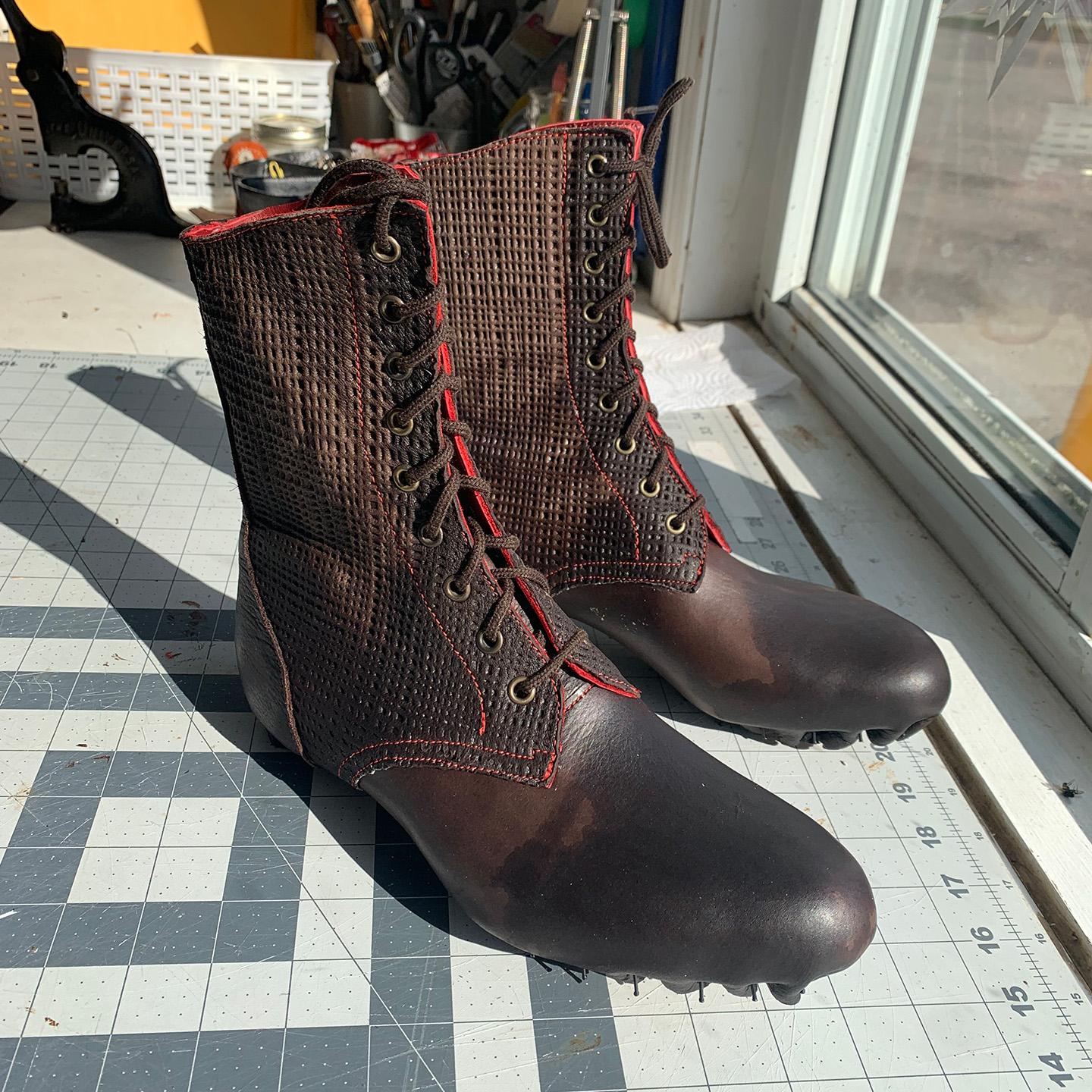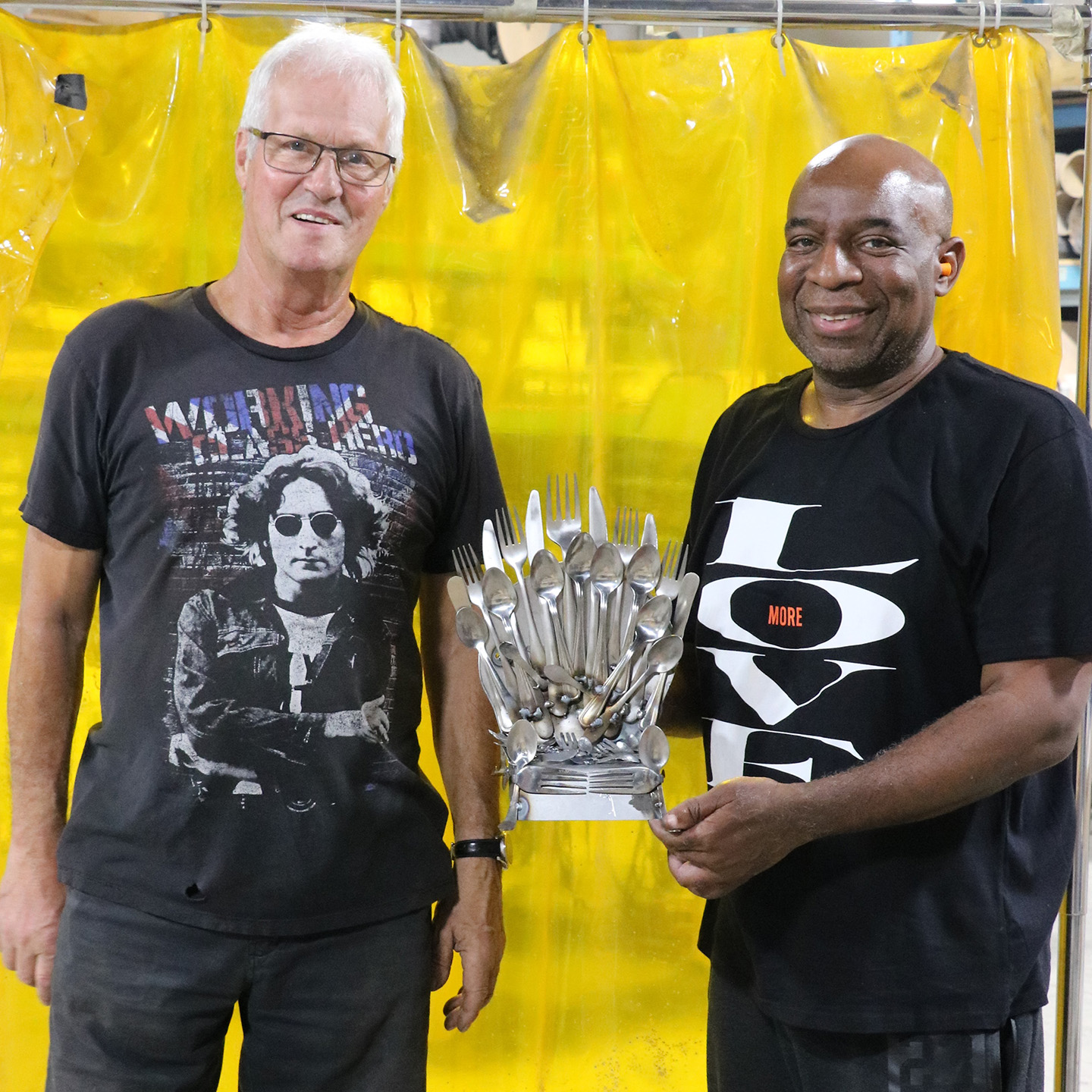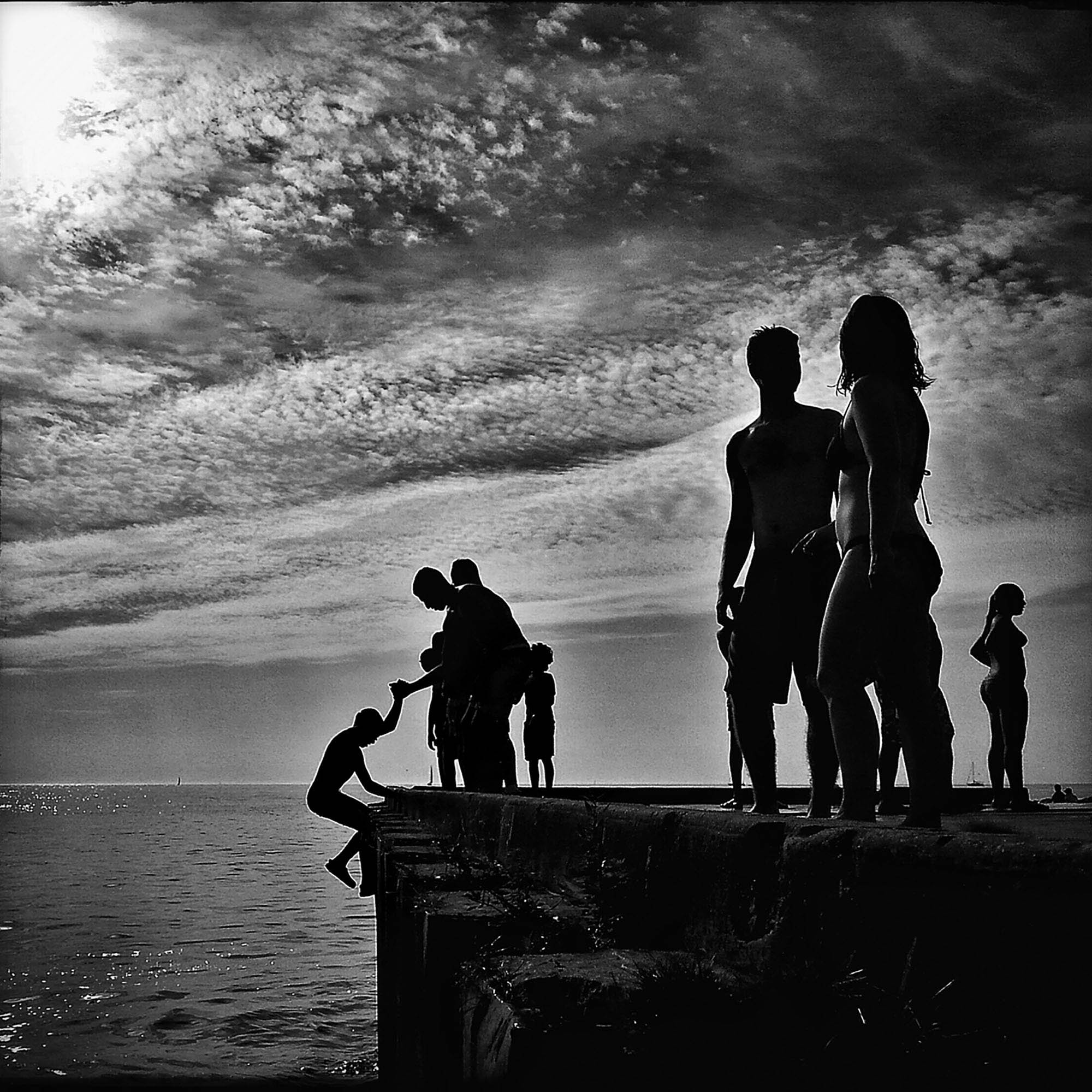-
Under the guidance of Sharon Ryman, a professional wig builder with years of experience in theatre, opera and musicals, learn wig-making basics and explore invaluable styling techniques used in this age-old craft.
In this workshop, students learn and expand on the following skills:
- Practice knotting by creating facial hair pieces
- Learn how to properly adapt, fit and customize a wig for stage and film
- Explore techniques to create a natural-looking hairline
- Learn effective procedures for wig preparation and wig application
- Discover methods to style wigs into finished looks
- Explore historical period wig styles for stage and film
- Discuss sources for materials, tools and resources
Materials, including a wig hook, holder and wig, are supplied as part of your workshop fee. Participants may take the wig home with them.
KEY INFORMATION
The low student-to-teacher ratio in each workshop ensures instruction is geared to each participant’s skill level and experience. Please indicate your related experience when you register.
-
In this Theatrical Jewelry Workshop you’ll discover how to create well-balanced, innovative and fun pieces that will last a production run.
Progress from concept to final product, practicing a variety of techniques essential to creating earrings, necklaces and accessories for theatrical or personal enjoyment. Take home your unique creations.
Ages 14+ welcome. All materials are supplied.
In this class, participants will:
- Discover how to create an effective jewelry design;
- Practice techniques used in working with wire, chain, gems, jewels and more;
- Learn theatrical techniques to embolden your designs;
- Take old jewelry and repurpose it; and
- Learn chain link and observe building techniques and applications.
KEY INFORMATION
The low student-to-teacher ratio in each course ensures instruction is geared to the participant’s skill level and experience. Please indicate your related experience when you register.
The Theatrical Jewelry Workshop with Tami MacDonald runs Saturday and Sunday, 9AM to 5PM.
-
Stratford Festival Cutter, Lela Stairs, teaches the skills of interpreting sketches, drafting patterns, mocking up blocks, and cutting a costume. This introductory pattern drafting workshop is ideal for those working in costume or wardrobe departments and those who build costumes for community theatre.
Lesson Outline
- Saturday – What is cutting? Introduce block development/custom patterns for actors; examine sketches and discuss sketch interpretation; practice taking proper measurements (which measurements and why); look at body types and discover how patterns work. Skills learned: what a cutter is; the importance of measuring properly; the differences in body types; sketch interpretation. Finish up with measurements and pattern drafting all day. Establish size and ease, dart manipulation; examine different sketches and see how they translate to a bodice; begin to establish style lines and period features within your basic block; begin cutting out and mocking up the loose-fitting bodice in muslin. Skills learned: drafting; dart manipulation; style lines that are period specific; translating a sketch to a pattern.
- Sunday – Continue cutting out mockups and completing pattern drafting. Sew mockups and begin fitting them (this is establishing a base for size and shape); discuss fittings and their importance, and learn what to look for in fittings (draglines, placement of seams and darts). Skills learned: drafting, cutting out a mockup and why, discussing fit. Homework during the week (not compulsory): finish sewing mockup if incomplete. Complete drafting to bring to class for the next weekend.
- Saturday – Complete fittings. Continue to sew and fit any bodices that were not complete. Return to patterns for pattern alterations and adjustments; talk about fitting room etique. Skills learned: fitting, fitting etiquette, pattern adjustments. Return to blocks to start looking at how that basic block turns into a period bodice, corset, or blouse. Start interpreting a sketch into the blocks and spend the day looking at different ways to manipulate the mockup for the costume bodice. Skills learned: changing style lines on your patterns to suit a period of design.
- Sunday – Continue drafting and mocking up the costume bodice. Do fittings if time allows; wrap up and conclude; option: introduce draping (if time allows and participants are ready to advance). These will be included with the letter of welcome to participants. Finish the pattern drafting workshop with a certificate from Off the Wall.
Classes run Saturdays & Sundays 9am-4pm.
-
In this workshop, you’ll create a pair of basic leather lace-up boots for your own feet based on personal measurements you provide in advance. Patterns will be drafted for you in accordance with these measurements.
In this challenging four-day workshop, students will learn the foundation for most theatrical or street styles of shoes and expand on the following skills:
- Discover the anatomy of a boot and learn how all the parts fit together
- Cut pieces of leather for the upper of the boots, and sew them together
- Attach insoles to the lasts and pull the leather uppers over the lasts
- Add soles and heels to the boots
The end product will be a pair of boots students can proudly wear home.
Note: Students will be required to use machinery such as industrial sewing machines and power tools. Physical dexterity is required.
Classes run Saturdays and Sundays, 9am-5pm.
-
Discover the excitement and satisfaction of crafting in metal in this intensive, four-day course. Explore how to manipulate steel by bending, welding and texturing it to give life to your creative expression.
Learn and expand on these skills:
- Train in the safe and effective use of power tools and equipment;
- Explore the metal-working basics: welding, cutting, grinding, shaping and fitting;
- Practice and get creative with MIG welding;
- Discover Oxy-Acetylene gas brazing techniques; and
- Learn how to shape and hammer metal, including using jigs and applying heat.
This is not a ticketed course. It is an artistic welding course meant to challenge students in the fascinating world of metalworking. All sessions of Artistic Welding cover the above techniques, enabling participants to heighten their skill levels with imaginative projects.
The low student-to-teacher ratio in each course ensures instruction is geared to the participant’s skill level and experience. Please indicate your related experience when you register.
Classes run Saturday & Sunday, 9am-4pm.
-
This intensive workshop will give an overview of photography fundamentals. The emphasis is to encourage participants to become adept with their own cameras by learning a variety of basic as well as creative shooting techniques and exploring a range of post-processing techniques.
Back-to-back seven-hour workshops will include instructional sessions along with practical assignments. Mentoring and group feedback will focus on positive, motivational critiques and advice. No experience is necessary.
An optional clinic on Friday evening (before the course begins) will be available from 6 pm-8 pm for those who would like to learn more about the settings, functions and operations of their own cameras.
A digital single-lens reflex or mirrorless camera is recommended. One inexpensive neutral density filter (six-stop preferred) is a help but not required. A laptop computer with the participants’ preferred post-processing program is also a plus but not essential.
During the course, participants will discover ways to fine-tune their own photographic vision by exploring:
- Basic photography principles, including selective depth of field, motion blur and creative lens choices;
- Introductory lighting techniques using inexpensive light modifiers for both on- and off-camera flash;
- Creative post-processing techniques, with an emphasis on simple workflow, uncluttered file management, and image enhancement using programs including Adobe Camera Raw, Lightroom, Capture One and Photoshop.
KEY INFORMATION
A low student-to-teacher ratio will help ensure participants become more comfortable with their own unique camera system. Please indicate what equipment you will bring, as well as your particular photography interests when you register.
Classes run Friday evening 6-8pm, Saturday and Sunday 9am-5pm.

